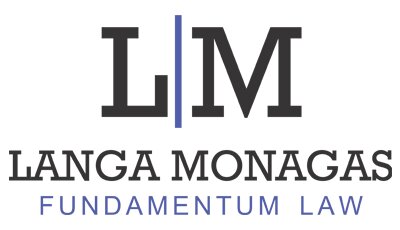Best Art & Cultural Property Law Lawyers in Santo Domingo
Share your needs with us, get contacted by law firms.
Free. Takes 2 min.
List of the best lawyers in Santo Domingo, Dominican Republic
About Art & Cultural Property Law in Santo Domingo, Dominican Republic
Art & Cultural Property Law in Santo Domingo encompasses a range of legal issues related to the creation, distribution, and ownership of artistic works and cultural artifacts. This branch of law seeks to preserve the cultural heritage of the Dominican Republic by protecting artworks, historical objects, and sites of cultural significance. As a city rich in history, Santo Domingo places significant importance on the regulation and protection of cultural property to ensure that it continues to flourish as a vibrant hub of artistic and cultural activities.
Why You May Need a Lawyer
Individuals and organizations may find themselves in need of legal assistance in Art & Cultural Property Law for several reasons, including:
- Acquiring, selling, or donating cultural properties and artworks.
- Intellectual property rights protection, such as copyright and trademark issues for artists and creators.
- Resolving disputes related to artwork ownership or authenticity.
- Navigating the legalities involved in exporting or importing cultural artifacts.
- Ensuring compliance with regulations for the preservation and conservation of cultural sites and objects.
Local Laws Overview
In Santo Domingo, the laws governing art and cultural property are influenced by both national legislation and international agreements. Key aspects of these laws include:
- Protection of Cultural Heritage: Laws designed to safeguard sites, structures, and objects of national and cultural importance from unlawful destruction or damage.
- Intellectual Property Rights: Legal framework supporting copyright, trademarks, and patents to protect artistic expressions and inventions.
- Repatriation and Export Controls: Regulations that address the return of cultural objects to their country of origin and control the movement of cultural items across borders.
- Cultural Promotion: Initiatives that encourage and support the continuation of cultural traditions and the arts.
Frequently Asked Questions
1. What is considered cultural property under Dominican law?
Cultural property is typically defined as items that hold significant cultural, historical, or archaeological value, such as artworks, manuscripts, monuments, and heritage sites.
2. How can I protect my artwork from being copied or used without permission?
Artists can protect their works through copyright registration, which grants them exclusive rights to reproduce, display, and distribute their creations.
3. What should I do if I inherit a piece of cultural property?
It is advisable to consult with a lawyer to ensure proper legal transfer and compliance with any applicable laws concerning the ownership and preservation of cultural property.
4. Are there restrictions on exporting cultural artifacts from the Dominican Republic?
Yes, there are strict regulations governing the export of cultural artifacts to prevent the loss of national heritage. Legal consultation is essential to navigate these regulations.
5. What agencies oversee cultural property laws in Santo Domingo?
The Ministry of Culture and other relevant governmental bodies are responsible for enforcing cultural property laws and overseeing heritage preservation initiatives.
6. Can I sell an artwork that I found at an archaeological site?
No, objects found at archaeological sites typically belong to the state and must be reported to the appropriate authorities to prevent illegal trade in cultural properties.
7. How are disputes about art authenticity resolved legally?
Legal disputes over art authenticity generally involve expert opinions, provenance research, and potentially litigation to determine the legitimacy of an artwork.
8. Is there any financial support available for conserving cultural sites?
There may be governmental or private grants available to support the conservation of cultural sites. Contacting the Ministry of Culture for guidance is recommended.
9. What steps should I take to donate an artwork to a museum?
You should have the artwork appraised and consult with a lawyer and the museum to draft a donation agreement that ensures legal compliance and states your intentions.
10. How does one acquire a permit for conducting archaeological research?
Individuals or organizations must apply for permits through relevant authorities, such as the Ministry of Culture, and demonstrate the capability and purpose of their research.
Additional Resources
For further assistance and information, consider reaching out to the following resources:
- Ministry of Culture: The main entity handling cultural property issues in the Dominican Republic.
- Dominican National Library: Provides access to a wealth of information related to art and cultural heritage.
- Museums and Universities: Institutions that often provide resources and expertise on art conservation and cultural studies.
- Legal Associations: Groups that offer directories of qualified lawyers specializing in art and cultural property law.
Next Steps
If you need legal assistance in Art & Cultural Property Law, consider taking the following steps:
- Identify your specific legal needs related to art or cultural property.
- Consult a lawyer specializing in Art & Cultural Property Law for tailored advice and representation.
- Ensure you understand both national and international laws affecting your case.
- Prepare all relevant documents, such as proof of ownership and related permits.
- Stay informed of any changes in laws or regulations that might impact your situation.
Lawzana helps you find the best lawyers and law firms in Santo Domingo through a curated and pre-screened list of qualified legal professionals. Our platform offers rankings and detailed profiles of attorneys and law firms, allowing you to compare based on practice areas, including Art & Cultural Property Law, experience, and client feedback.
Each profile includes a description of the firm's areas of practice, client reviews, team members and partners, year of establishment, spoken languages, office locations, contact information, social media presence, and any published articles or resources. Most firms on our platform speak English and are experienced in both local and international legal matters.
Get a quote from top-rated law firms in Santo Domingo, Dominican Republic — quickly, securely, and without unnecessary hassle.
Disclaimer:
The information provided on this page is for general informational purposes only and does not constitute legal advice. While we strive to ensure the accuracy and relevance of the content, legal information may change over time, and interpretations of the law can vary. You should always consult with a qualified legal professional for advice specific to your situation.
We disclaim all liability for actions taken or not taken based on the content of this page. If you believe any information is incorrect or outdated, please contact us, and we will review and update it where appropriate.
















